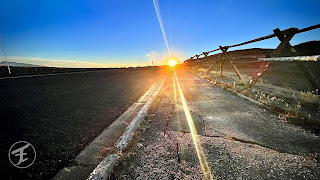The Guiding Light of Reason
Reason is that attempt to set myself apart from a thing that has presented itself to me which I would like to better manipulate or understand. Reason is that necessary component of detecting how much of me I am imbuing into that thing that presented itself. Reason sees into the dynamics between me and that thing. If I only observe myself or only observe the thing but never observe the connection in between, how can I insure that what I have been studying has any application in the real world? What looks good on paper doesn’t always pan out so great in actuality.
If I ignore Reason and only view a thing as I see it, do I miss the opportunity to make the best connection with that thing? If I want the best humanly possible outcome in any situation, I want to observe as many components as I can before I act. If I only make calculations based off of emotions, I could misstep and pull myself farther away from that best outcome that I had wanted to achieve. And, thus it is that from time immemorial, while Consciousness leaves most sentient beings who posses it mystified, it is actually Reason that is viewed as supreme.
Consciousness binds humanity to the seasons but it is Reason that calculates more precisely when to sow and when to reap, when to pursue an enemy and when to camp, and when to buy or sell. During wintertime, Consciousness says, “It is so damn cold and it is I who feel it!” and Reason says, “I could freeze so I should do something.” Reason leads one to figure out the best method to mitigate the issue and moreover weed out the faults in some innovation for further improvement.
Reason works out complex problems. Consciousness sees things as they are. Were it not for Consciousness we would be unaware of our own existence as well as the existence of our environment but Reason takes us a step further. Would we need Reason were it not for the sake of survival? We would just be here if there was no death or fear of pain to reflect on. What would there be to be conscious of? Would curiosity alone be sufficient to bring one’s self to formulate Reason? It seems that Reason became progressively more salient as a “thing” in itself once a culture was no longer at the threat of annihilation. When less time is focused on fear, more time is available for admiration and desire; and when less time is focused on desire, more time can be focused on curiosity. Imagine a charioteer and two horses in somewhat of the vein of Plato - the horses being fear and desire and the chariot being Reason.
All leaders must obtain some quality of reason lest their followers suspect any hint of fraud or incompetence. Pragmatically, a leader might want to limit the consciousness of their followers in order to better manipulate them to do their bidding. One of the best ways to do so is to preoccupy their minds through some form of entertainment - and if it be hyperbolic entertainment (viz. religion) all the better. When you suppress a peoples’ consciousness and keep them continually in want or need presenting yourself as the provider or perhaps convincing them it is entirely their fault for their want, you limit their desire to think - especially if your priests tell them that faith alone in your Neon God, not reason, will save them.
Nonetheless, the question has to be asked: Are we, as a species, prone to faulty assumptions that appear to serve us well? It’s easier to listen to somebody who sets themselves up as “one who knows” than to ask questions to one’s self about the validity of such and such a subject or the authority of the individual presenting it. Should we be paranoid of anybody providing a different view? Or, should we use Reason to help us profile people better? Are we doomed to decadence or can we allow the light of Reason illuminated first and foremost by consciousness to provide better direction through an uncertain future which lies ahead?


Comments
Post a Comment